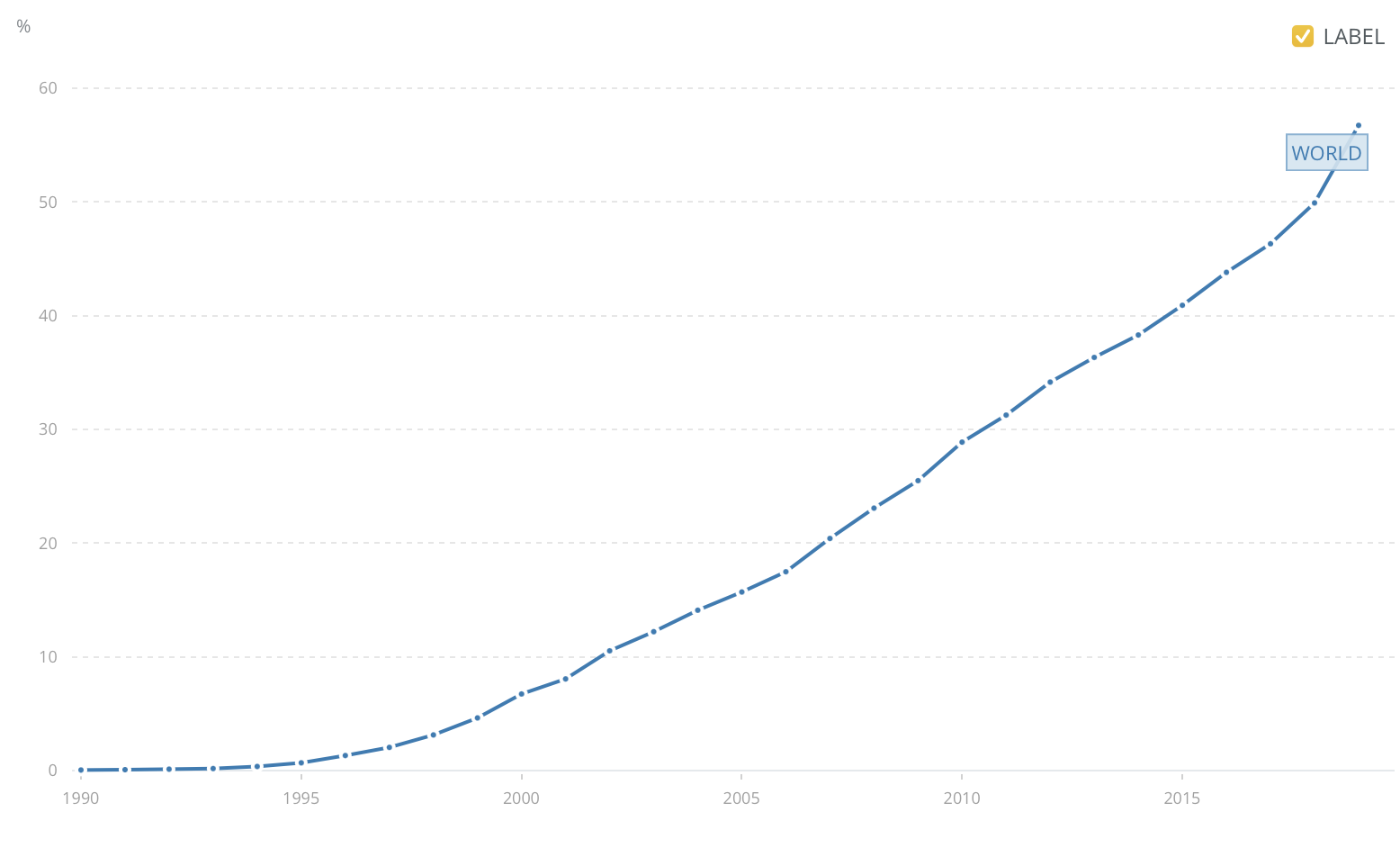The Effect of the Internet on Education
The internet allows people to access information cheaply, instantly and in a variety of formats.

See how more people have access to the internet? That's a great thing!
However for the sake of filling the page let's delve into a more detailed discussion.
Please note that none of the content is my own work, I copied and pasted it from here.
The Good
Communication
The ability to communicate with other students and teachers across the world has enabled 21st century education to transcend geographical distance and physical boundaries like never before. Suddenly new ideas and theories can be shared across continents, whole new worlds of thought are available to students in far-flung places and teachers across the world are able to use forums to share valuable ideas and techniques.
Resources
From online dictionaries and encyclopaedias to Wikipedia, an abundance of information on every conceivable subject under the sun is now available to students at the touch of a button. The potential for exploiting these resources to learn is enormous and students are now able to study, discover and learn no matter where they are. When you consider how easy it would have been to create a school project on dinosaurs in the 1980s compared to the treasure trove of facts, figures, pictures and more available to today’s student, the amount and depth of information they can access has been vastly improved by the internet.
Education Technology
‘Edtech’ and ‘e-learning’ are popular terms on Twitter and social networking sites, referring to new ways of teaching and learning that use computers, digital devices like iPads and mobile phones and clever programs to teach students in new ways. New and exciting resources like electronic educational games and programs like an online chemistry lab allowing virtual experiments to be realistically carried out are changing the face of education for the better.
Accessibility
The internet allows access to education for anybody who has a computer, meaning that students in isolated and distant geographical locations are able to connect to educators for the first time. Not only does it mean that anybody who wants to can benefit from online lecture series from top universities like Harvard and Cambridge, but it also enables students who would not be able physically to attend university to take courses and achieve qualifications through distance learning programs.
The Bad
Plagiarism
The birth of the internet sadly spawned a new evil in the world of education – the exponentially increased opportunity for students to access the work of academics, writers and other students and to copy and paste it at the click of a button before passing it off as their own work. Whilst measures are slowly coming into force to try to prevent electronic plagiarism, the nature of the internet is such that it will never be possible completely to control the poaching of academic material with the tragic result that many students are able to avoid the experience of learning for themselves. Startling recent statistics have shown that not only do 1 in 3 American students admit having used the internet to plagiarise work for an assignment, but, perhaps even more worryingly, only 29% viewed copying from the web as “serious cheating”. This suggests that the birth of the internet has not only enabled a new form of cheating, but also created a shift in moral perceptions of what is considered right and wrong in education.
False Information
Many students now growing up with the internet are so used to being able to access answers at the click of a mouse that they forget not all information on the internet is reliable or completely accurate. It is amazing how many students believe that Wikipedia is the ideal go-to resource for any academic question, when in fact the famous online encyclopaedia is quite openly compiled by any anonymous member of the public who chooses to post there and is in no way guaranteed to include only accurate information submitted by academic experts of any kind! The potential for students to become waylaid by false information and misleading statistics is enormous!
The Demise of Books
The internet has heralded an enormous surge towards digitalisation, in books and education as in every other sphere of life. Suddenly sales of books are plummeting, children’s reading levels are decreasing rapidly and that proud bastion of academic greatness, the library, is under serious threat. The irony that this great new resource might eventually herald the end of books and libraries and consequently deal an enormous blow to literacy, has not escaped the notice of critics; with many children’s authors campaigning vociferously for books and libraries to be rescued from the brink of extinction.
Distraction
Whilst the internet presents an enormously rich educational resource to those students who choose to use it for that purpose, it is also the gateway to a world of distractions and not particularly enriching pastimes for young people! Statistics have revealed that with high numbers of teens having access to computers and the internet in their bedrooms, time spent on homework or reading books has plummeted as hours spent on Facebook and social networking sites have taken over. Many critics warn that any benefit the internet may hold for education will be easily outweighed by its ability to distract and take students away from educational pastimes and endeavour.
In Summation
The internet has had a far more positive impact on education than anything else modern society has produced however, it is not without flaws.